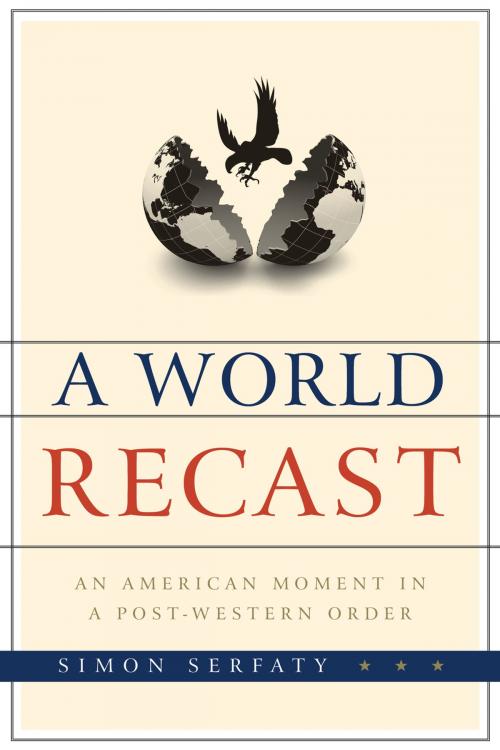A World Recast
An American Moment in a Post-Western Order
Nonfiction, Social & Cultural Studies, Political Science, International, International Relations| Author: | Simon Serfaty | ISBN: | 9781442215894 |
| Publisher: | Rowman & Littlefield Publishers | Publication: | October 12, 2012 |
| Imprint: | Rowman & Littlefield Publishers | Language: | English |
| Author: | Simon Serfaty |
| ISBN: | 9781442215894 |
| Publisher: | Rowman & Littlefield Publishers |
| Publication: | October 12, 2012 |
| Imprint: | Rowman & Littlefield Publishers |
| Language: | English |
The end of the unipolar moment completes the passing of a Western era that was prolonged for half a century when the United States took over for a defeated and exhausted group of European states after World War II. Distinguished scholar Simon Serfaty vigorously argues that while it is possible, and even desirable, to acknowledge the passing of the Western era, it is exaggerated to present it as an irreversible decline of the West relative to an irresistible rise of the Rest. Rather, he shows that the unfolding post-Western moment will be messy. In addition to the United States and the states of Europe as a Union, the new cast of significant powers will involve a dozen or more countries: emerging powers like China and India, postimperial powers such as Japan and Russia, new influentials like Brazil and Turkey, pivot states like Egypt and Pakistan, nuisance states like Iran, failed or failing states like North Korea and Sudan, and others. Echoes of a Sarajevo moment played out this time in the greater Middle East, the new global Balkans for the twenty-first century. But Serfaty convincingly contends that even during a zero-polar moment of geopolitical transition, American power remains superior, and thus indispensable though no longer decisive; Western power stands on top and thus is inescapable though no longer exclusive; and even as the Rest gains broadly in stature and reach it is unlikely to achieve preponderance any time soon. This powerful and provocative book should be read by all who share a deep concern for the future of America—and a recast world.
The end of the unipolar moment completes the passing of a Western era that was prolonged for half a century when the United States took over for a defeated and exhausted group of European states after World War II. Distinguished scholar Simon Serfaty vigorously argues that while it is possible, and even desirable, to acknowledge the passing of the Western era, it is exaggerated to present it as an irreversible decline of the West relative to an irresistible rise of the Rest. Rather, he shows that the unfolding post-Western moment will be messy. In addition to the United States and the states of Europe as a Union, the new cast of significant powers will involve a dozen or more countries: emerging powers like China and India, postimperial powers such as Japan and Russia, new influentials like Brazil and Turkey, pivot states like Egypt and Pakistan, nuisance states like Iran, failed or failing states like North Korea and Sudan, and others. Echoes of a Sarajevo moment played out this time in the greater Middle East, the new global Balkans for the twenty-first century. But Serfaty convincingly contends that even during a zero-polar moment of geopolitical transition, American power remains superior, and thus indispensable though no longer decisive; Western power stands on top and thus is inescapable though no longer exclusive; and even as the Rest gains broadly in stature and reach it is unlikely to achieve preponderance any time soon. This powerful and provocative book should be read by all who share a deep concern for the future of America—and a recast world.















